Should people be permitted to sell a kidney to save someone’s life?
In The Times last week Matthew Syed (£) forcefully argues, in what he admits is an angry tone, that we must allow a market in kidneys in the UK. His opinion piece was prompted by news this week that a hospital in Sri Lanka is conducting kidney transplants on the black market for Western clients. Syed says that it is madness that donors cannot be paid.
Last month an article in the Clinical Journal of the American Society of Nephrology proposed that the Canadian government could pay a flat fee of $10,000 for an organ, because many people who say they would not be living organ donors might change their minds if the price were right. Back in 2011 Sue Rabbitt Roff generated controversy when she argued in the British Medical Journal (£) that in order to raise live organ donation rates, donors should receive an average annual income, and students short on cash for college should be able to cash in their kidneys.
Here are Syed’s reasons (£) (which he admits are influenced by the ‘philosopher’ John Harris’s views on this):
• 300 people with kidney failure die each year waiting for a transplant
• There are 6,500 people waiting and only 2,500 transplants each year
• Prohibition has driven the market underground
• Ruthless brokers therefore get large commissions from organs
• Donors cannot make informed decisions and go for backstreet operations
• Individuals should have the choice to decide themselves
• It is a safe operation ‘with a 0.03% risk of mortality (£)’
• The remaining kidney ‘takes up the slack of the one removed’
• The surgeon, medical team and transplant coordinator all get paid, only the donor doesn’t
• This all directly causes a loss of life and the expense of keeping people on dialysis
• Far better would be a regulated market, with minimum pricing, to meet the need.
Syed asks why should the ‘paternalistic medical community (£)’ know any better than the individuals who could do with some extra money for a safe operation? He says:
‘I suspect that the real reason that so many oppose paid-for donations is because we cannot handle the idea that some people are so poor that they’d freely choose an invasive procedure in return for cash. But that’s a terrible reason to stand in the way of liberating the system.’
I will set out my response to his arguments. But first, a few facts to briefly set the scene. (I do not cover the issue of selling blood in this blog, but some of the dilemmas that it generates are similar to those of organ selling).
In the UK under the Human Tissue Act 2004 it is unlawful for donors to be paid for donating an organ or part organ. However, it is legal for a donor to receive reimbursement of expenses, such as travel costs and loss of earnings, from an organ donation. The Human Tissue Act refers to consent as ‘appropriate consent’ which is interpreted by the HTA as a positive act; a voluntary act, one without threat, coercion or reward.
The waiting list for kidneys is indeed very high, but Syed’s figure of 6,500 is from 2011 and there has been a drop since then, to 6111 (and a fall from 6889 in 2010), continuing a steady decrease in waiting list numbers. This corresponds to an increase in deceased donor transplants for kidneys between 2010 and 2013 (from 1481 to 1750) and a slight increase in living donor transplants for kidneys (1038 to 1068). There were also more transplants in 2013 than he quotes, 2,800.
These statistics are important because they show that since policies were put in place to increase organ donation, the direction of travel has been in the ‘right’ direction, with falling waiting lists and increased donations. While this will surely continue, numbers nevertheless do remain high (but will never fall significantly with an ever-expanding sick, ageing and dying population).
Here are my responses to Syed’s arguments:
• A kidney is not a spare organ and having two kidneys is important! (The human kidney is the body’s filter. It cleans 180 litres of blood per day. We are born with two kidneys because if one of them becomes damaged, the other one can pick up the slack. If both kidneys fail, without medical intervention, it will lead to death).
• Kidney removal involves major surgery. (The mortality rate is 0.03% but morbidity (serious complications) is 2-4%. Only in exceptional circumstances can this risk be justified in a person who is both fit and healthy).
• Wealthy people are highly unlikely to donate an organ for payment (whereas those who are poor may feel they have little choice).
• Paying for organs encourages vulnerable people to forfeit their body parts. (Scheper-Hughes describes kidney selling as a hidden medical tax on the bodies of the world’s poor. She also likens it to ‘paying poor and desperate people to slowly dismantle themselves.’ (1).
• Selling organs commercialises parts of our bodies. (It takes away the ‘gift’ principle and altruistic motivation which is the mainstay of organ donation in the UK).
• To place a financial value on human beings or parts of human beings undermines the inherent dignity of the human person.
• If the payment for organs is high it will incentivise stealing organs. (Illegal procurement already takes place and would continue if even more money is involved. Scheper-Hughes again: ‘The medical institutions created to monitor organs harvesting and distribution are often dysfunctional, corrupt or compromised by the power of organs markets’.)
• It will justify the commercialisation of organ sales. (This will be exacerbated as corporates move in for profit).
• If the payment is not substantial rather than making someone better off or helping them, the money is quickly used, and the donor is left with one less kidney.
• Paradoxically, deceased and living donor organ donation rates may well decrease if financial motives compete with ‘altruistic’ motives. (Introducing a regulated organ market would attract paid donors at the expense of voluntary donors.)
• It is only really possible to operate a regulated market in kidneys (as there are two kidneys), not livers and hearts, which will continue to rely on altruistic donation. However removing altruism for kidney donation will compromise the altruistic donation of other organs, or will lead to pressure for payment for them as well.
• Regulation would require rigorous built in protection and criteria which are almost impossible to set, adhere to and keep consistent with other international regulations. (Regulation would need to ensure minimal mental competency and health for donors, as well as ensuring there is no pressure put on potential donors, criteria that are difficult to define maintain).
• A regulated market will not stop the black market in organ donation and may increase it. (Those in search of kidneys will still go to the place where it is the cheapest).
• Waiting list numbers do not tell the full story. (As this CMF paper notes, pre-operative assessment of potential recipients will exclude some people who are likely to develop post-operative problems that are worse than before. For these, transplantation would be an unfair option, both for the individual in question and also for other patients who would be denied a transplant).
• Operations would put intense pressure on the surgeon who is operating on a person who does not need an operation and will not benefit physically from it.
• One of the very few countries that has legalised the sale of organs is Iran and there are many loopholes in that system. (And I suggest it is perhaps not an ideal model country to copy).
• Christians will further appreciate that we have an obligation to protect vulnerable people. (The only people who would be attracted to sell their organs would be the poor and disadvantaged. They would not be making autonomous fully free choice but would be exploited by the wealthy).
Transplantation of an organ or tissue from a dead to a living person presents no ethical problem per se. With few exceptions religious groups, Christian and non-Christian, have recognised the worth of such transplants. Offering organs after one’s death or voluntarily offering live donation of a paired organ is a gift of great love and self-sacrifice (John 15:13).
Transplants are desperately needed but the answer is not organs at any cost. A better response must involve campaigning for relief of global poverty and healthcare inequalities. It is in social justice, tackling poverty, raising awareness and increasing altruistic, voluntary donor and transplant rates, with both living and deceased organ donation. Encouragingly, Christians are often at the forefront of this. Kidneys should be used to clean the body, not to pay off loans.

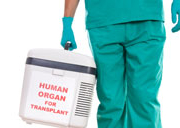
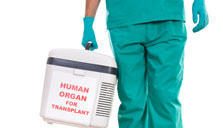
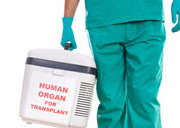

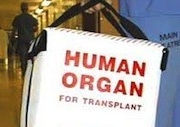

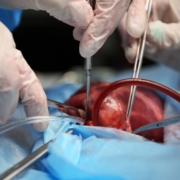
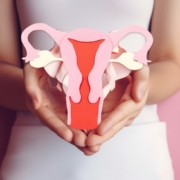
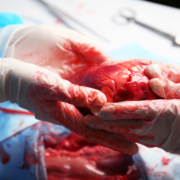
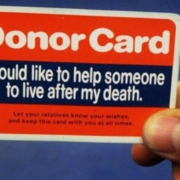


Leave a Reply
Want to join the discussion?Feel free to contribute!